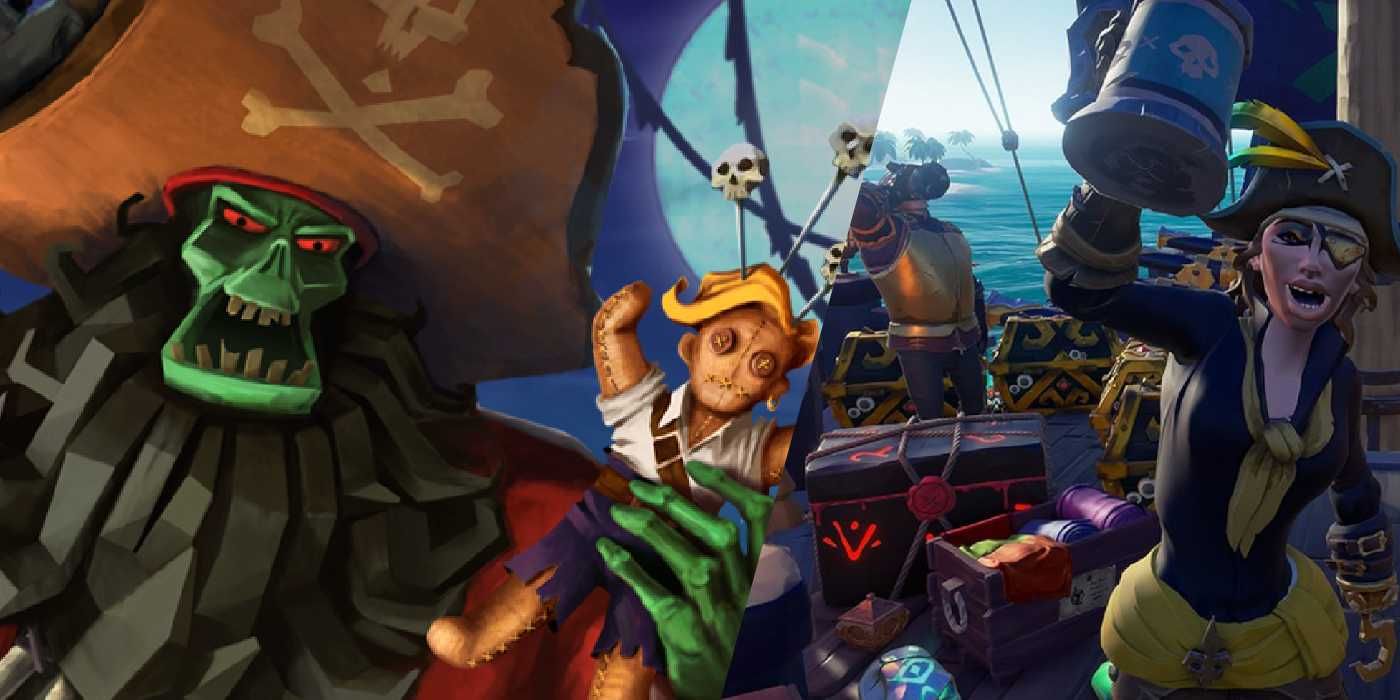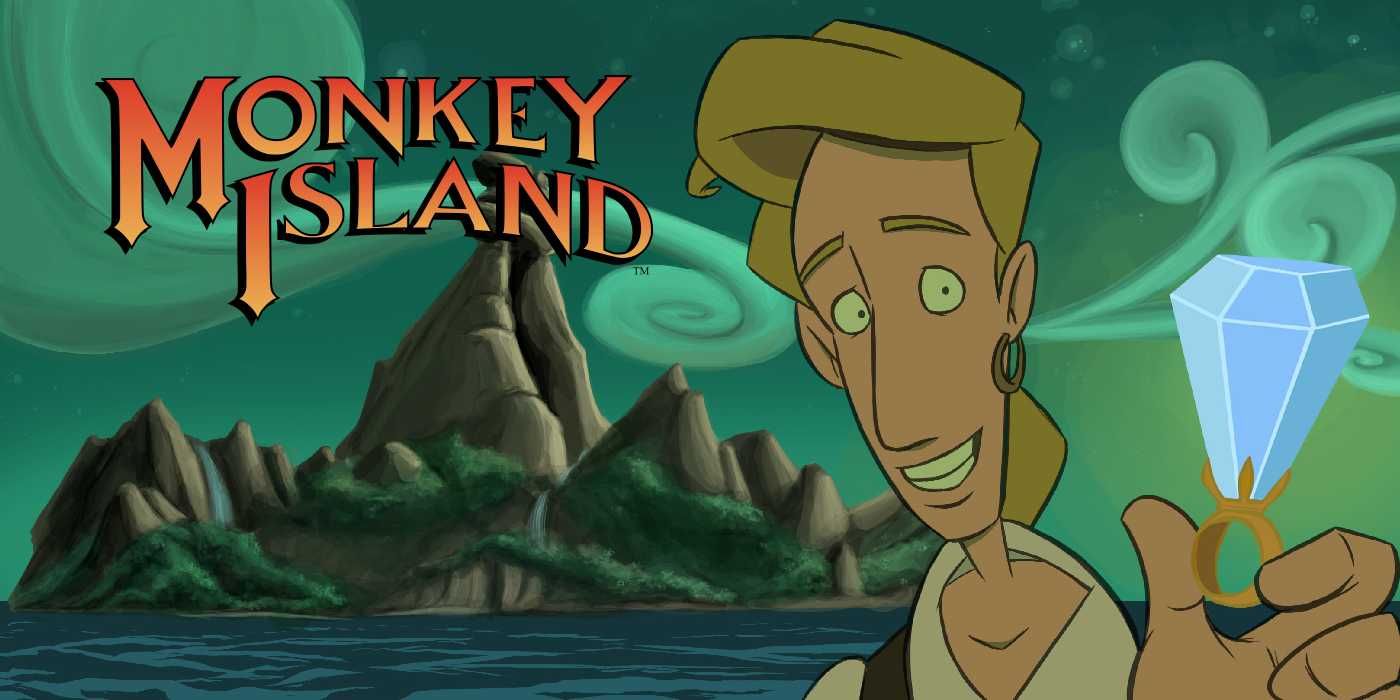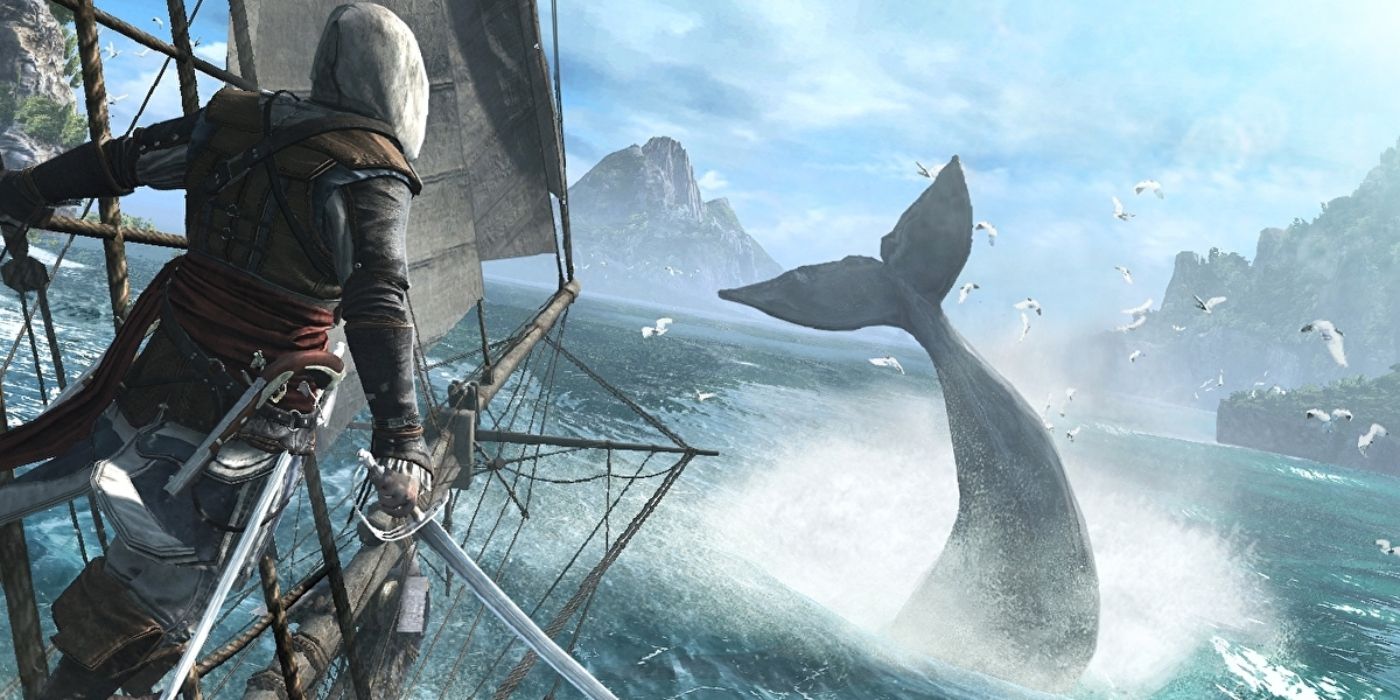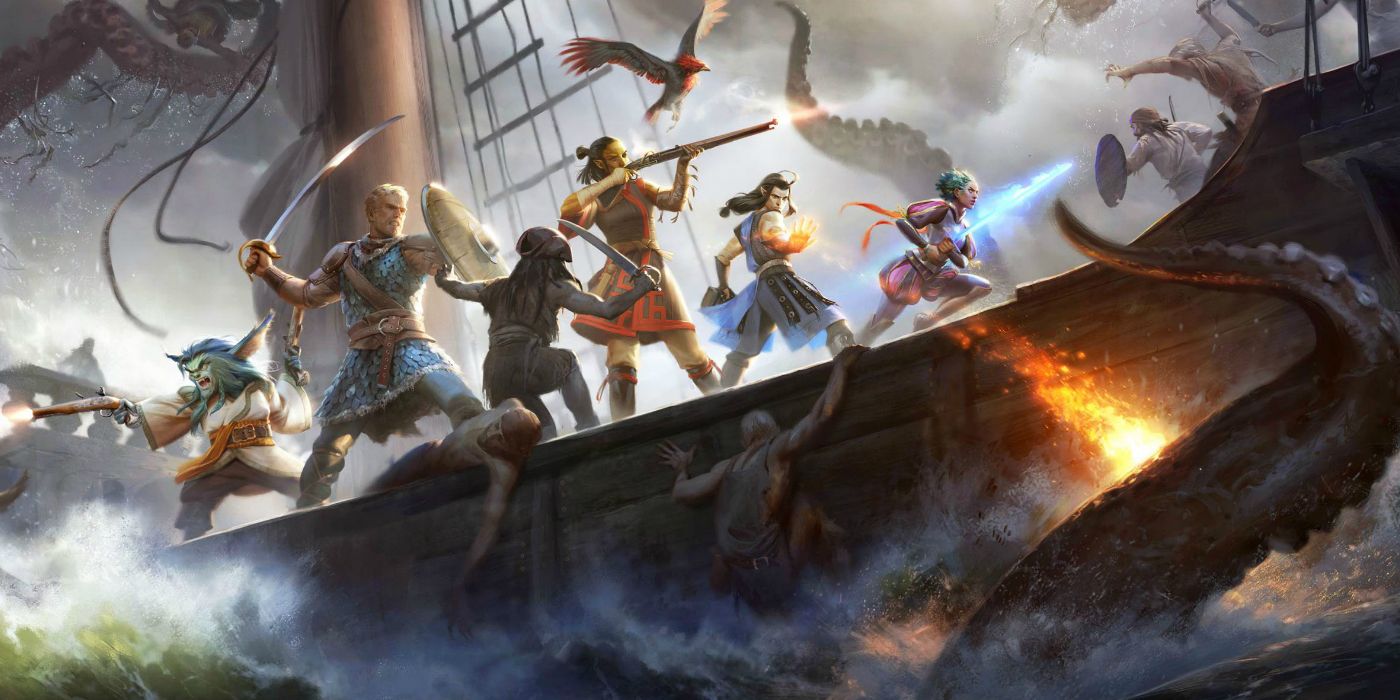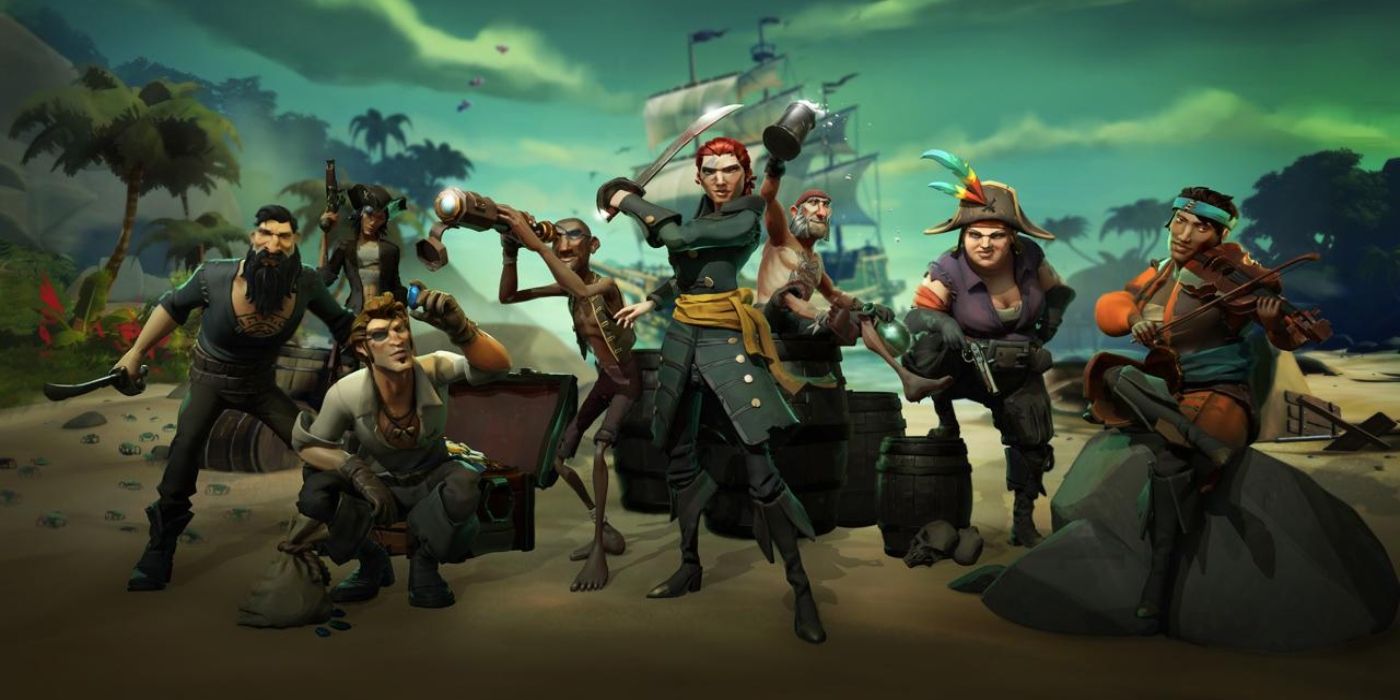The historical Golden Age of Piracy was already over by the mid-1700s, but after a revival in the popular imagination in the late 1800s the period has been plundered for novel narratives, movies, and, more recently, video games. Pirate games span a wide variety of genres from point-and-click adventures to action-oriented multiplayer experiences, but all of them aim to capture the type of over-the-top swashbuckling adventure established over more than a century of stories about buccaneers and buried booty.
A truly great pirate game only rises from the depths every few years, however. These games are a treasure trove for wannabe raiders and seasoned corsairs alike. Some of them helped establish tropes which would impact the image of Golden Age piracy for years to come, while more recent games have taken the genre’s sea-roving revelers to strange new lands.
The Monkey Island Series
No list of pirate games would be complete without a tip of the tricorne hat to LucasArts’ Monkey Island games. The story of Guybrush Threepwood as he tries to win the hand of his true love, governor Elaine Marley, and fight the forces of the Ghost Pirate LeChuck has had a huge influence on the pirate genre, in particular the conception of the first Pirates of the Caribbean movie, which is believed to have been partially adapted from an abandoned Monkey Island script, with Elaine becoming Elizabeth, the governor’s daughter, and LeChuck becoming Captain Barbossa.
Perhaps more importantly, the Monkey Island games injected a revived sense of fun and originality to a genre which, when the games began in the ‘90s, appeared largely concerned with readapting Treasure Island. The Curse of Monkey Island in particular is a hilarious game, with singing pirates, family reunions gone awry, and a new cartoonish art-style that would help cement the tone of the rest of the series. Monkey Island isn’t just a great series of video games, it’s essential playing for anyone who wants to understand the pirate genre and how it ended up where it is today.
Assassin’s Creed 4: Black Flag
Assassin’s Creed 4: Black Flag took a big risk in a series known for its relatively formulaic yearly releases at the time. In the wake of three consecutive Ezio Auditore games followed by Assassin’s Creed 3, Black Flag totally shook up the mechanics of the series to put players in the shoes of Edward Kenway, a privateer-turned-pirate with a ship full of shanty-singing seadogs.
With Black Flag, Ubisoft retained some of the series' classic features like free-running while adding everything from open-sea-combat to whaling to diving for buried treasure. While the best Assassin’s Creed games before Black Flag had been propelled by their stories, the fourth game truly found a way to bring its world to life and to make exploring it as compelling as the plot.
Pillars of Eternity 2: Deadfire
For those looking for a more serious RPG experience, Obsidian Entertainment’s Pillars of Eternity 2: Deadfire is the way to go. There’s one big twist, however: far from the crystal waters of the Caribbean, Deadfire takes place in the Deadfire Archipelago, a chain of volcanic islands in a sea filled with monsters at the edge of Obsidian’s fantasy world of Eora, soon to return in the studio’s upcoming first-person RPG Avowed.
One of the most impressive things about Pillars of Eternity 2: Deadfire is that it directly continues to the story of the first Pillars of Eternity, and unlike many sequel RPGs, the player even continues to play as the same character. Despite this, the setting gives it a completely new and exciting tone, while the stakes of the plot are escalated to almost absurd levels; the main characters take to the high seas in search of a reborn and highly dangerous god. For gamers who love the pirate genre’s more mythical side, Deadfire is a fine offering from one of the top developers in the RPG industry.
Sea of Thieves
The genius of Sea of Thieves has always been its simplicity. Players are thrown into the role of customizable cartoony pirates in groups of up to four, and are dropped on an island on a huge map where they can plunder to their heart’s content, all while keeping a nervous eye out for fellow pirates coming over the horizon.
The water physics in Sea of Thieves are incredibly impressive, and turn what would otherwise be a relatively repetitive sea-scape into a dynamic map for memorable moments. Developer Rare understands that part of the appeal of the entire pirate genre is pure fool-hardy comradery. There’s nothing quite like jumping in with three friends to sail head-on into a raging storm, Megalodon in pursuit, while chasing another player ship to take petty revenge for a stolen treasure chest.
The game has next to no story, but it gives players all the tools they need to create their own silly and memorable moments. Sea of Thieves players can launch themselves out of canons, grapple themselves with harpoons, drop barrels of explosives on each other, and, in one of the game’s most brilliant features, can synchronize playing a range of tunes from on a wide variety of instruments. Nothing quite captures the feeling of being a pirate more than crashing headfirst into another ship as the player’s motley crew fires their canons in sync with a rendition of Tchaikovsky’s 1812 Overture played on banjo, accordion, and hurdy-gurdy.
The best pirate games aren’t defined by their mechanics, but their appeal to the idea of a reckless but fantastic kind of freedom. Monkey Island, Black Flag, Deadfire, and Sea of Thieves are radically different in terms of their gameplay mechanics, but they all make the same appeal to the idea that the high seas at the edge of the known world offer an opportunity for people to become whoever they want, making it one of the most valuable veins for fantasy of any period of history. Whether it’s true or not, that appeal will likely keep pirate stories alive well into the next generation of gaming.

